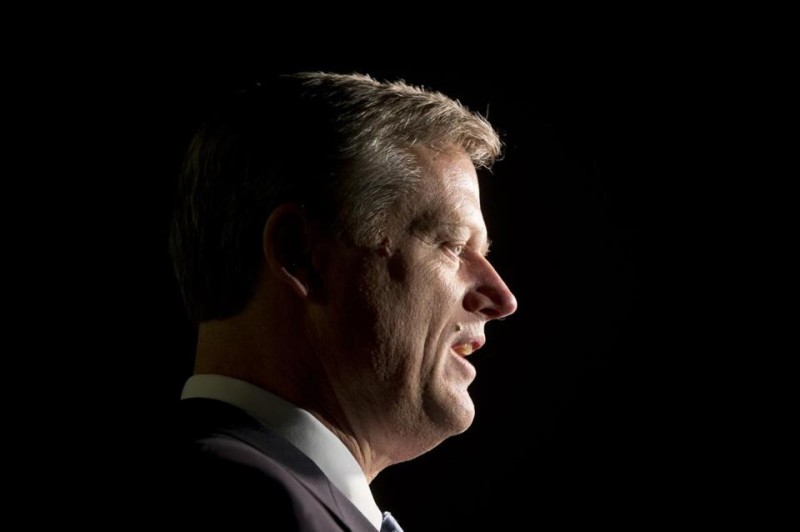A new boss moves into the State House’s third floor today. But to many business leaders, Charlie Baker won’t be all that new. He may have been noncommittal about controversial topics on the campaign trail, en route to being elected governor. But the Republican is already a familiar face in the business community, from his days as a top aide to William Weld and from the decade he spent running the state’s second-largest health insurer. Many business leaders think: He’s a former chief executive, he’s one of us.
The business world fully expects Baker to have a more cooperative relationship with the Legislature than his predecessor, Deval Patrick; that could prove to be crucial as Baker works to help plug a big budget gap and expand Greater Boston’s economic success to other parts of the state. While Patrick targeted certain industries for stimulus, Baker will take a broader view. No more playing favorites — or so the thinking goes. That said, Baker’s ascendancy to the governor’s office will have ripple effects for a wide range of sectors. Some will be happier than others.
Health insurers
Insurance executives often hear from policy makers that the health care system here is too confusing. They won’t be hearing that from Baker. After a decade as CEO of Harvard Pilgrim Health Care, Baker returns to the State House with instant credibility in the insurance sector. This assurance couldn’t come at a better time for the folks who blame the Patrick administration for bungling the rollout of the Mass. Health Connector website. They also hope Baker can dig deep into data from the state’s Medicaid program and use that information to rein in its skyrocketing costs, responsible for more than one-third of the state’s $36 billion-plus budget.
Hospitals
Baker has been campaigning for transparency in health care pricing for longer than he’s been campaigning for governor — and that’s saying something. He will finally get the firepower to advance his longtime crusade. Greater clarity for consumers may already be coming. But Baker’s advocacy on this issue could be a headache for high-end providers who are used to having their prices largely hidden from consumers. Partners HealthCare, as the biggest hospital system in Massachusetts, could find itself under further scrutiny, regardless of whether it gets the court clearance it needs for its pending acquisitions.
Biotechnology
Patrick showered the biotechnology sector with love, as one of the most vocal champions of the $1 billion life sciences package that was passed by the Legislature in 2008. This region is now arguably the biggest biotech hub in the world, and Baker is not going to want to mess with that success. But Baker responds cautiously when he is asked about the wisdom of throwing more subsidies in biotech’s direction. The leaders at the trade group MassBio don’t seem too worried: They’re already working on a sequel to that 2008 bill, with the expectation that it will get a largely positive reaction in the governor’s office.
More sectors
Energy: Deval Patrick and his people put an unusual focus on wind and solar power and on energy efficiency. Under Patrick’s leadership, vast amounts of ratepayer dollars poured into all three. Solar and energy efficiency efforts were wildly successful, wind power much less so. (Just look at what happened to Cape Wind this week.) Baker will probably want to see market forces play a bigger role in clean tech’s future and downplay the subsidies. This approach could be good for mature companies, but it might be tougher on the younger startups. Big commercial users of power expect Baker to be driven less by environmental concerns than his predecessor. That said, Baker is in no rush to endorse Kinder Morgan’s giant pipeline expansion, even in its reconfigured form. He recognizes the need for more natural gas but wants to see pipelines developed over existing rights-of-way. Baker is also expected to play a crucial role in reviving talks among the New England governors to address the region’s high electricity costs and grid-reliability issues, in part by importing more Canadian hydropower.
Technology: Baker’s desire to bring more technology into state government bodes well for the IT sector, and no one expects Baker would push for something as harebrained as the infamous “tech tax” that earned Patrick a black mark among the geek set. But here’s a bummer for many startups: He’s not going to be as passionate about banning noncompete agreements as Patrick was. Baker favors putting some controls on noncompetes, such as those included in a compromise bill that never made it into law last year. But Baker sees the issue as a nuanced one, while it seemed to be black and white for Patrick.
Manufacturing: Patrick started to pay attention to the manufacturing sector in the final years of his administration, but many factory owners still felt like the uncool kids who didn’t get invited to the big party. Baker’s desire to share the wealth and stop playing favorites will help change that perception in this sector, which is stable — it still employs 250,000 people in the state — but also suffering in many ways. Manufacturers are anxious to see if Baker can curb the state’s out-of-control electric prices and find an effective way to close the gap between people with outdated skills and the employers who have a long line of jobs to fill.
